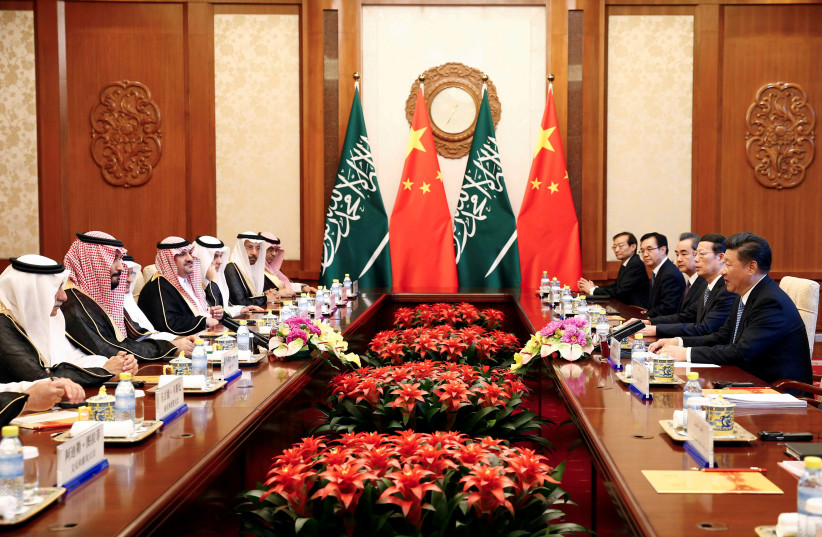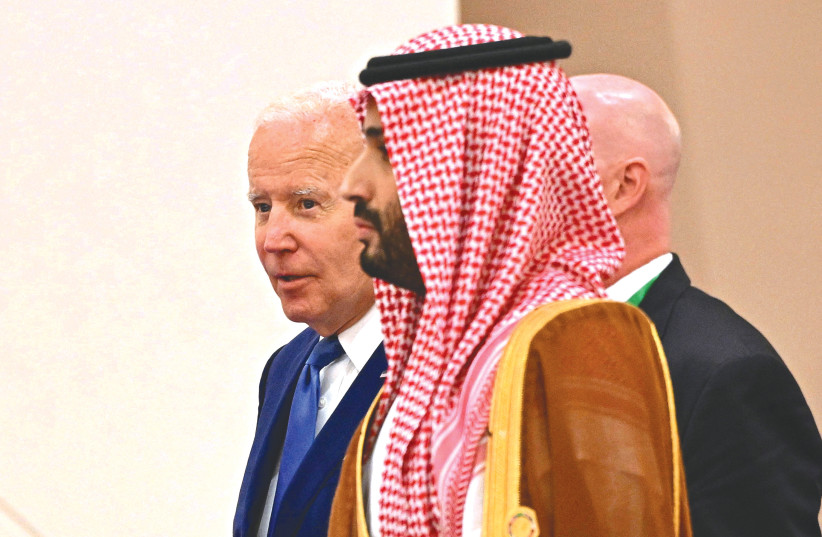It is difficult to analyze the historic visit of Chinese President Xi Jinping to Saudi Arabia without noting the significance and impact of the visit, as well as the unprecedented Arab-Chinese summit. The unprecedented summit, which took place a few months after US President Joe Biden’s visit to Saudi Arabia last August, reflects the Kingdom’s growing importance and Riyadh’s role in its regional environment.
The Arab-China and Gulf-China Summits were held at the invitation of the kingdom and reflect Saudi Arabia’s leading role in laying out the cards in the region in accordance with the strategic interests of the Gulf and Arab countries. China’s role and global influence are growing, and this has happened significantly in recent years.
Belt and Road
China’s global ambitions have increased since the announcement in May 2017 of the Belt and Road Initiative, which represents President Xi Jinping’s most significant foreign policy and deepens his country’s international network.
The initiative, first announced in 2013, includes a network of cooperation with some 68 countries. Figures confirm that China is currently spending about $150 billion (NIS 521 b.) annually to invest in partner countries as part of an ambitious economic project that includes building ports, roads and railroads in dozens of countries to achieve the goals of this major initiative.
In addition to signing a comprehensive strategic partnership agreement between Saudi Arabia and China and deepening China’s partnership with GCC countries, the Chinese president’s recent visit to Riyadh will help expand areas of cooperation between the two countries.

This partnership will extend both to the economy (Saudi Arabia is the main supplier of oil to China, and Beijing is Saudi Arabia’s main economic partner) and to other important sectors. Saudi Arabia is expected to join the Shanghai Cooperation Organization and move from being a dialogue partner to an observer.
This is a very important step, given the importance of this organization, home to about 40% of the world’s population and 30% of the world’s GDP, and can play an important role in promoting trade exchanges that are not tied to the US dollar. China is clearly an important player in the kingdom’s Vision 2030 program to diversify Saudi Arabia’s economy.
Riyadh relies heavily on Beijing’s role in implementing projects of this ambitious vision, which include industry, logistics services and megaprojects in various sectors. On the other hand, the Saudi plans represent a great opportunity for Chinese companies that want the biggest chunk in the Kingdom’s major development projects, such as the NEOM project, which will invest about $500 b. (NIS 1.7 trillion).
What is the impact on US-Saudi relations?
The greatest significance of Jinping’s visit to Saudi Arabia lies in its importance to the US, a traditional and historic ally of Washington.
This visit confirms that Riyadh will not be helpless in the face of US pressure, especially in the oil sector; the US must recognize the game change; Saudi Arabia seeks a multilateral international relationship that meets its strategic interests; and the kingdom’s former traditional policies are no longer viable in the current environment and circumstances.
IN THIS context, it is striking that the Kingdom has not laid all its cards on the table yet. Riyadh still holds the oil price calendar, which it exports to China in renminbi rather than dollars, as is still demanded by China.
But Riyadh has not yet responded to considerations about its desire to maintain balance in international relations, to take the initiative and to maneuver according to its interests.

Saudi Arabia is aware of the enormous consequences of not valuing the price of its oil exports to China in dollars, as well as the link to the global influence of the US, mainly related to the strength of the American currency and its impact on the global economy. The Chinese president’s visit to Saudi Arabia strengthens Saudi Arabia’s role and influence and reflects the kingdom’s prestige.
However, this does not necessarily mean a breakdown in relations between Riyadh and Washington, especially in the security and military sphere. There remains evidence that Saudi Arabia wants to maintain its alliance with the US but under new rules of the game that reflect changes in the international environment and the Saudi vision of the relationship.
A strategic repositioning
It is not a question of squabbling or reacting to one side or the other, as some analysts like to explain these moves by Saudi Arabia.
Rather, it is about a strategic repositioning and reorientation of the kingdom’s foreign policy. This is in line with the rules of the game in the environment of international relations and balances after the beginning of COVID-19, then the outbreak of the crisis in Ukraine and the coming of a new era of balances and international relations, which require steps in line with these developments.
The political discourse in Saudi Arabia seems to state directly and indirectly that it is focused on the interests of the country and is disregarding other responses. This, of course, includes aligning interests and investment networks with the kingdom’s vision of the short and long-term prospects for its international relations.
It should be noted that Jinping’s visit to Saudi Arabia is his second in six years. This in itself is an indication that China is seeking to expand its strategic ties with Saudi partners, not only at the oil, economic and investment levels but also at the strategic level, in general.
Riyadh, which will host two major US-China summits on Gulf Arab dialogue in six months, reflects Saudi Arabia’s growing international role. It confirms the existence of a new geostrategic reality that will undoubtedly help shape the new rules of the game in the future world order.
The writer is a UAE political analyst and former Federal National Council candidate.
